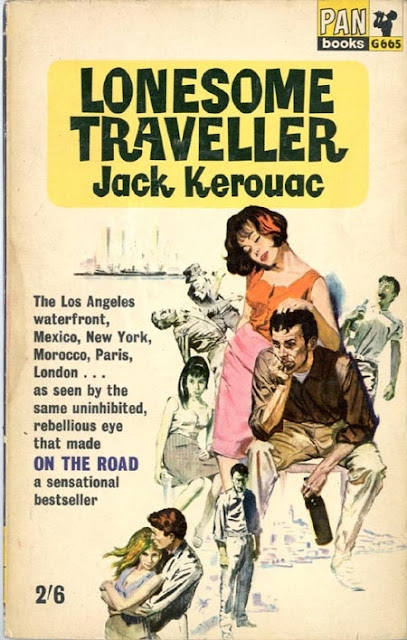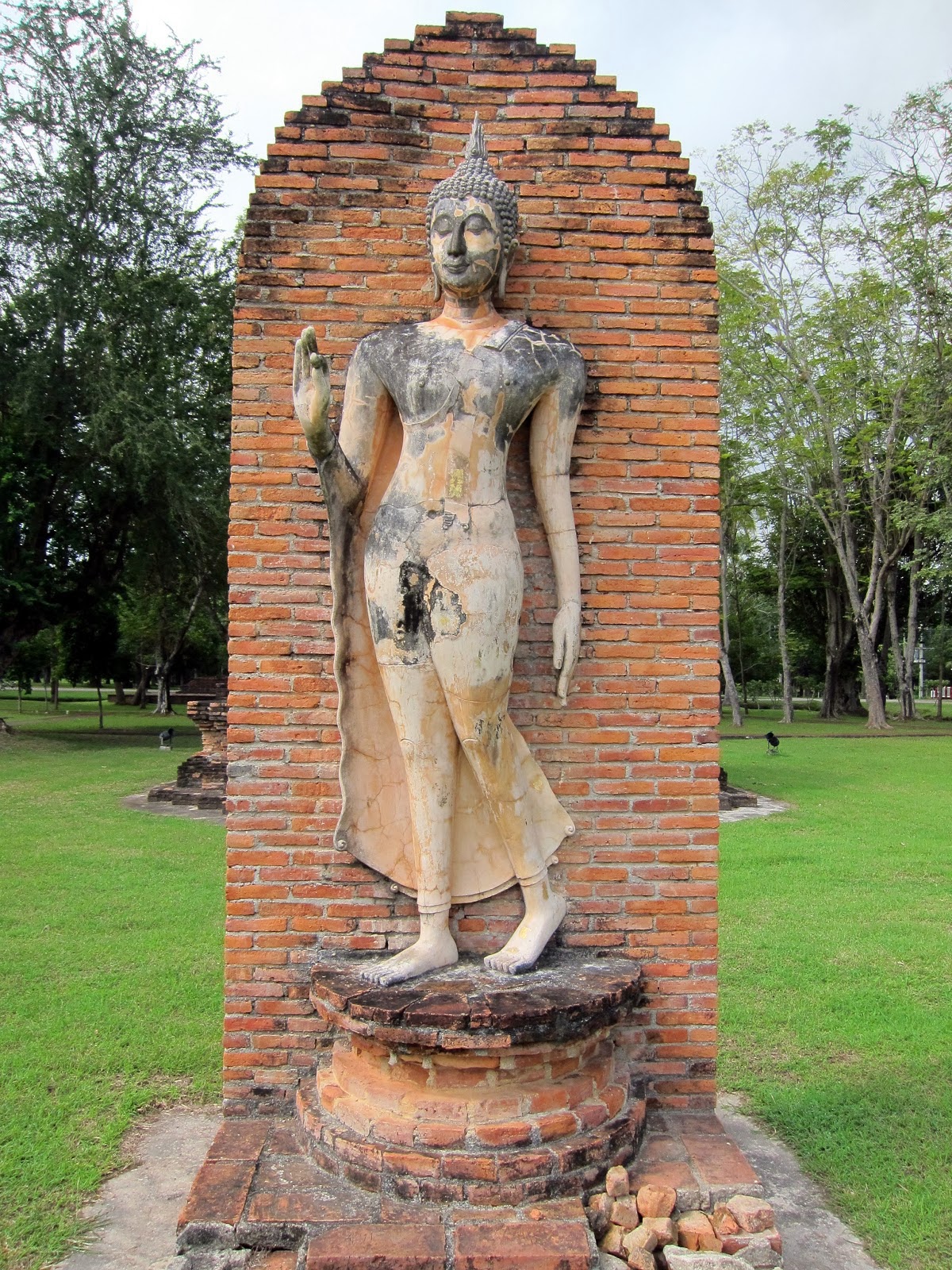"No one saves us but ourselves. No one can and no one may. We ourselves must walk the path." I didn’t say that. Buddha
did. But I tend to agree
with him.
Things Buddhist, and indeed Beat,
were on my mind last week when I went for a walk in Berkeley, possibly the most
Buddhist and Beat place in America. The
plan was not complicated. I intended to walk from the Cactus Jungle to the Allen
Ginsburg Poetry Garden. I knew very
little about either place. I’d discovered
them online while looking for “things to do in Berkeley.”
Certainly it seemed odd that there’d be a cactus garden, let alone a
jungle, in the temperate, dampish environs of the East Bay, though that only
made me more eager to see this one. Even
though I was aware that this wasn’t actually a place to hang out, but rather a
commercial enterprise, a nursery selling cacti and succulents, this didn’t make
it any less intriguing, and I didn’t know what to expect.
I had a clearer mental picture of what I thought a poetry garden might
be. I imagined something like Ian Hamilton Finlay’s Little Sparta (that's it above), a
certain acreage of terrain dotted with lines of
poetry, perhaps on plaques or paving stones, or cut into stone or
rocks. Was I asking too much? Possibly.
Before I got to the meat of this walk I had to get to the Cactus
Jungle, which was a couple of miles from where I happened to be at the time, on
Shattuck Avenue, although of course that formed part of the walk too – the
journey is the destination, and so forth - and it didn’t seem daunting. Most of Berkeley is leafy, flat, quirky and
funky in places but essentially quite suburban.
And it had been raining earlier in the day, but that had cleared by the
time I set off.
I had to walk past the public library where a large crowd of disheveled
men were clustered. I’m not sure, per
Jack Kerouac, that these were genuine dharma
bums, but bums they certainly were. It seemed to be a gathering of the
tribe, and inexplicable until I noticed the time. It was ten to one. The library opened on Sunday at one o’
clock. The guys were ready to invade,
eager to get inside that warm, dry, and bookish environment.

Next was the Berkeley High School, where there was the above, a kind of
mural of Phil Lesh of the Grateful Dead.
I say “kind of” because it’s not painted on a wall, but on one of those
metal boxes that I seem to see more and more of as I walk the streets. I guess they can’t have much to do with the
phone system, since fewer and fewer
people have landlines these days, so I guess it must be to do with cables. They do provide a canvas for a certain kind
of street art, and since they’re ugly to begin with, and don’t appear to belong
to anybody, people don’t get too upset when people paint on them.
Opposite the school was the Berkeley Peace Wall, in Martin Luther King Jr. Memorial Park, over 5,000 hand-painted tiles,
mostly with messages in favor of, y’know, peace, and not too far away there was this
sign hanging on somebody’s garden fence:
I enjoy a good slogan as much as the next man, but I’m not sure how “imaginatively”
the United States might have reacted when, say, the Japanese bombed Pearl Harbor. And was the failure of imagination here on
the part of the Americans or the Japanese?
These are big questions and possibly not ones to be answered by a sign
hanging on a garden fence.
And of course even in leafy, essentially suburban Berkeley, a man with
a taste for edgelands and ruin can find what he’s looking for, the occasional
ruined house, and this absolutely wonderful “repurposed building.” All my life I’ve wanted to live in a metal
building, and this one above has the finest patina (call it rust) that I’ve
ever seen.
As I often say, edgelands aren’t always necessarily on the edge of
things, but the Cactus Jungle was located in the far west of Berkeley. It wasn’t
actually on the other side of the tracks, it was on “this” side, but very close
to them.
It was starting to rain by the time I got to the jungle, and the staff
were huddled, sheltering under canopies and behind plastic sheeting. This did not look like cactus country. And although I’m not much of a man for nature
notes, I did observe this: the plants in
the nursery were having spring-related growth spurts, well before anything was
happening to their brothers down in LA. I
wondered if it was Berkeley’s extra rain that kicked them into action, but more
likely it was the expert care and feeding by the folk of the Cactus Jungle.
And so on to the Allen Ginsberg Poetry Garden, another couple of miles,
back in the general direction I’d come from.
Along the way there was this domestic cactus garden which seemed pretty darned
successful, if not exactly a jungle.
There was this suburban dinosaur:
There was this car – cool enough in itself, though the message “smoke
dope” that had been sprayed on the side towards the rear seemed to be overdoing
things a little.
Eventually I arrived at the Allen Ginsberg Poetry Garden. I gotta say I was disappointed and I think Mr.
Ginsberg would be too. Maybe I had
indeed expected too much, but what I found was a bleak L-shaped patch of land
attached to a school. There was a fancy
gate, an Asian-style pool with some small trees and a rather stylish metal
bench, but there was very little in the way of poetry, either real or
metaphoric, not a line of poetry on a paving stone or a plaque, and certainly
nothing carved into a rock. If you wanted poetry you had to bring it
yourself.
Strictly speaking I hadn’t actually brought any poetry with me, but I
had brought some poetic prose. I had a
newly acquired (though vintage) copy of Kerouac’s The Subterraneans in my bag.
I’d just bought it in Half Price Books. I took it out and started to
read.
And what is a “subterranean anyway” eh Jack? “They are hip without being slick. They are intelligent without being corny, they are intellectual as hell
and know all about Pound without being pretentious or talking too much about
it, they are very quiet, they are very Christlike.'' I thought that
sounded a lot like me, except for the Christlike part, obviously.


















